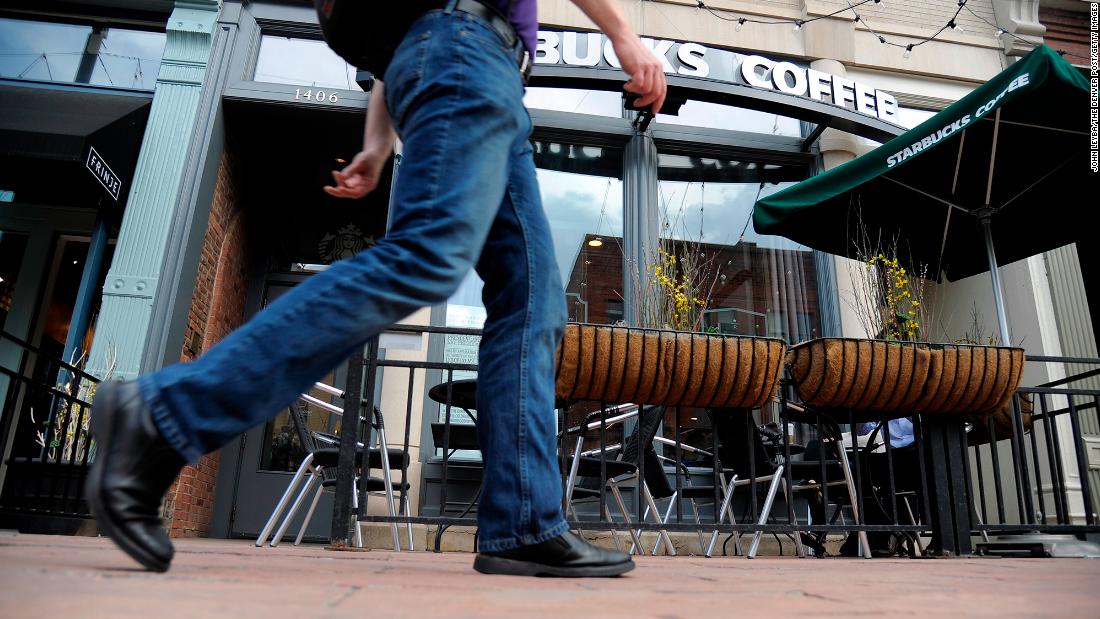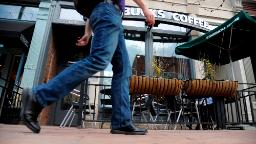

American cities are particularly lacking public toilets, and rather than deal with that directly, lawmakers have been content to let Starbucks and other chains take on the duty. (Yes, I said duty.)
New York’s former mayor Michael Bloomberg famously deflected public pressure to address the restroom issue 20 years ago, quipping that “there’s enough Starbucks that’ll let you use the bathroom.” (Then he proceeded to tackle the real scourge of Gotham known as Big Soda… but that’s a rant for another day.)
It’s been an imperfect solution, at best, but it’s about to get a lot more complicated.
Here’s the deal: Starbucks is done being a public toilet.
Schultz said he is worried about safety, and while he didn’t reverse the policy outright, he seems to be worried about a growing “mental health” problem threatening Starbucks employees. (As a quick aside, I don’t know what he means by that mental health comment, and he didn’t offer any examples. My guess is that Starbucks employees are just legitimately tired of having to clean the bathroom so much, and Schultz is doing all he can to keep his staff from revolting and forming unions. Anyway, the point is, whatever the reasoning, Starbucks has the full right to lock up its bathroom doors whenever and however it wants, and unless you own stock you don’t get any say in that decision).
For more than 20 years, Starbucks has been a de-facto public bathroom, especially in cities, and now that it’s re-evaluating its policy, it could force the issue back into the political sphere.
“The commercial solution is really not a great solution… No rational person would want Starbucks to pay for traffic lights or streetlights,” said Lezlie Lowe, author of “No Place to Go: How Public Toilets Fail our Private Needs.”
MY TWO CENTS
So, here’s a free, unsolicited idea for Mr. Schultz and Co: Wait wait wait a dang minute before you go and force me to spend five bucks on an over-roasted (yeah I said it) cup of coffee just so I can use the toilet whenever I’m foolish enough to run errands in Manhattan.
I get it — bathrooms are gross, and no one wants to think about their barista having to bounce from milk frother to toilet plunger to cash register and back.
So here’s a thought: Rather than locking up the loo, make it the best part of the store. Hire bathroom attendants to free baristas from the extra work. Turn your sad water closets into palaces, with multiple stalls and fresh flowers and mints and scented candles and Enya’s greatest hits playing on the speaker system. Stock them with that nice, soft toilet paper and put up that flattering lighting that all the Instagram influencers love.
Woah woah, Ms. Morrow, we can’t possibly afford that, you say? False. You can. Will it be expensive? Yes. But lemme tell you something, Buck-aroos, you gotta spend money to make money. Starbucks is a solid brand but what else do you have besides legally addictive stimulants that you sell at a borderline criminal markup?
All I’m saying is you can take your current bathrooms, which in my experience have all the aesthetic appeal of the Port Authority terminal, and make them into something people actually want to stop into.
And look, I hear you on the whole “private enterprise can’t shoulder all the failings of government” talk. But, like, I’ve lived in New York long enough to know not to expect even the most minor improvements to basic city infrastructure — I can’t hold my breath bladder for the city to figure this one out.
NUMBER OF THE DAY: 3.9 BILLION
For the uninitiated: One Medical is a membership-based primary care service that promises customers “24/7 access to virtual care.” For an annual fee, you get access to its sleek website where you can book appointments for doctor’s visits that take place either over Zoom or inside bright offices that look like they were ripped from a West Elm catalog.
Why it matters: Amazon is doubling down on health care as an industry ripe for disruption. It acquired PillPack, an online pharmacy, in 2018, and later launched its own digital pharmacy in the United States. (It also tried and failed to partner with JPMorgan Chase and Berkshire Hathaway on a project that set out to provide better and cheaper health care… Turns out that’s a really hard thing to do, though, and the project officially folded last year).
STREAM KINGS
The next episode of the Netflix saga is going to be hard to watch.
In other words, pleasing Wall Street is going to mean angering, or at least annoying, customers.
How?
First, adding advertising that interrupts your “Ozark” binge sesh.
- This is a huge shift. Even as recently as 2019, Netflix assured shareholders that being ad-free is a “deep part of our brand proposition.”
- Cut to three years later, and the company is banking on a new subscription tier that’ll be cheaper for customers (yay) because it’s supported by ads (boo).
- Subscribers will have the choice to remain ad-free, but they’ll be paying a premium for it, and that feels like less of a treat.
Then, cracking down on account sharing.
- The days of freeloading are numbered.
- Netflix is already experimenting with features to compel people to pay extra to share their accounts.
BOTTOM LINE
These initiatives are all crucial for Netflix’s bottom line, but they also undermine the goodwill Netflix has built with viewers who have long appreciated its innovations — like its freakishly accurate suggested watches, the “skip intro” button, trending lists, the “shuffle” function for when you’re overwhelmed and just want the bots to choose something for you.
“The original consumer proposition, which was incredibly great value, is now flipping on its head,” media analyst Michael Nathanson told Frank.
